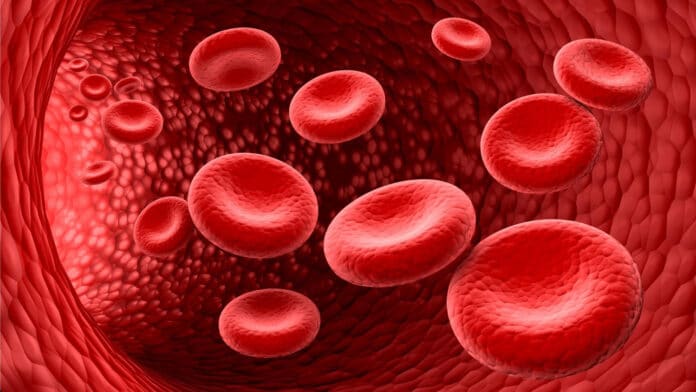Red blood cells transport oxygen in our bodies and can shield the heart from damage during a heart attack. A study by KI, published in the Journal of Clinical Investigations, discovered this protective role. A diet rich in nitrate-filled vegetables like arugula can also boost this effect.
John Pernow, Professor of Cardiology at the Department of Medicine, Solna, Karolinska Institutet and senior physician at Karolinska University Hospital, and the study’s corresponding author together with Jon Lundberg, professor at the Department of Physiology and Pharmacology, Karolinska Institutet said, “This effect was also shown in a clinical study in patients with high blood pressure who were randomly assigned to eat nitrate-rich vegetables or a diet low in nitrates.”
As a part of the study, researchers conducted experiments involving red blood cells from mice. These cells were introduced into a heart attack model using mouse hearts. Before the experiments, the red blood cells were subjected to low oxygen levels, and the mice were given nitrate-enriched drinking water.
In a clinical study, red blood cells were taken from high blood pressure patients. These patients were split into two groups: one had a diet rich in nitrate from green leafy veggies, and the other had a diet low in nitrate. These red blood cells were then used in heart attack experiments with rats.
The results showed that these red blood cells can protect the heart when oxygen levels are low, and a simple dietary change can boost this protection. This could be vital for people at risk of heart attacks.
The next step in the research is to develop drugs that can trigger this protective mechanism in red blood cells to safeguard the body’s tissues and cells during low oxygen conditions.
“We also need to understand how the blood cells communicate their protective signal to the heart muscle cells,” states John Pernow.
In conclusion, this study reveals that red blood cells have a natural way of protecting the heart during a heart attack when there’s insufficient oxygen. Additionally, it suggests that eating foods with lots of nitrates, like green leafy vegetables, could make this protection even better.
In the future, researchers will try to figure out exactly how red blood cells send this protective message to the heart muscles. The goal is to use this knowledge to create treatments for people who might have heart attacks.
Journal Reference:
- Jiangning Yang, Michaela L. Sundqvist et al., Hypoxic erythrocytes mediate cardioprotection through activation of soluble guanylate cyclase and release of cyclic GMP. The Journal of Clinical Investigation. DOI: 10.1172/JCI167693.
